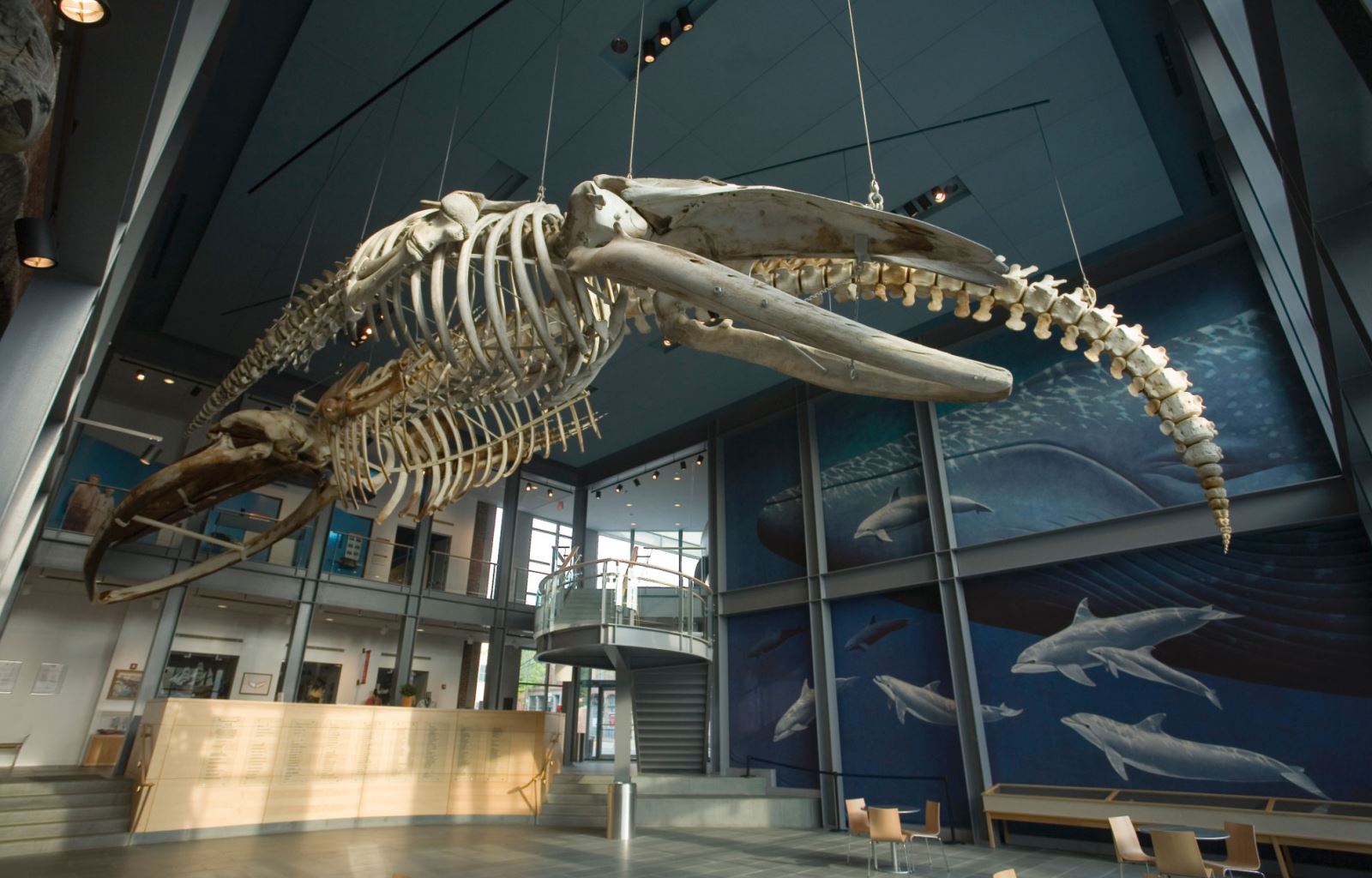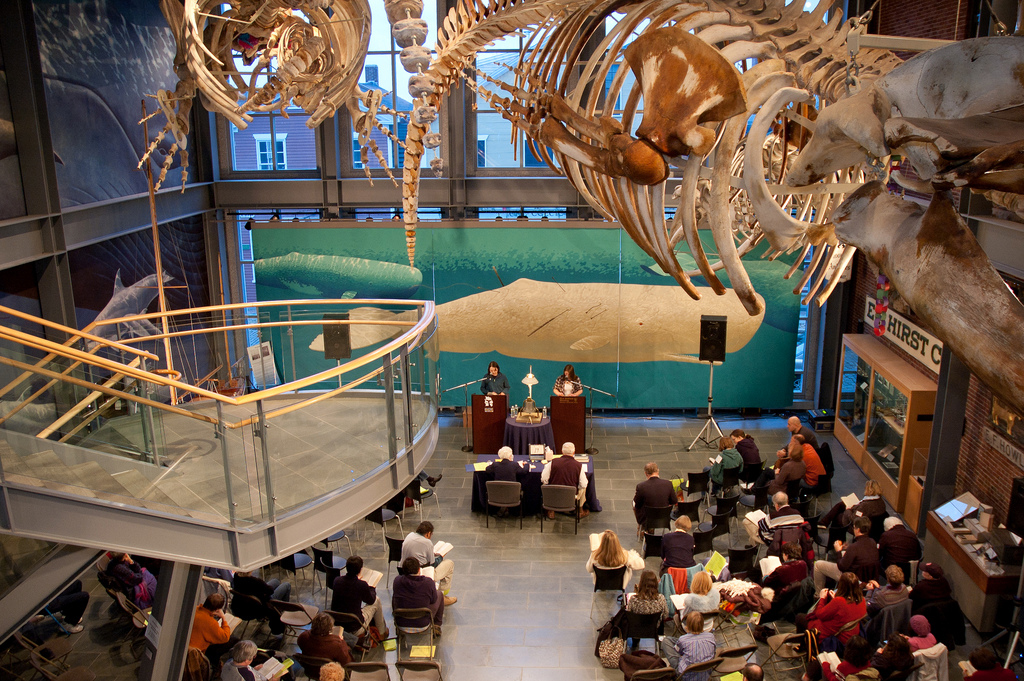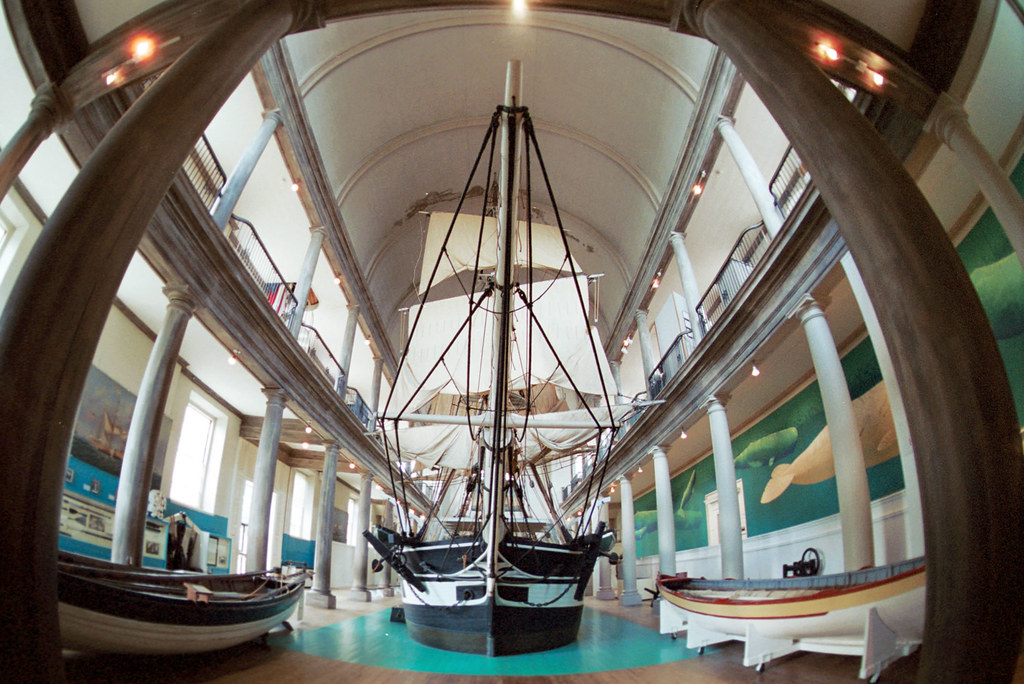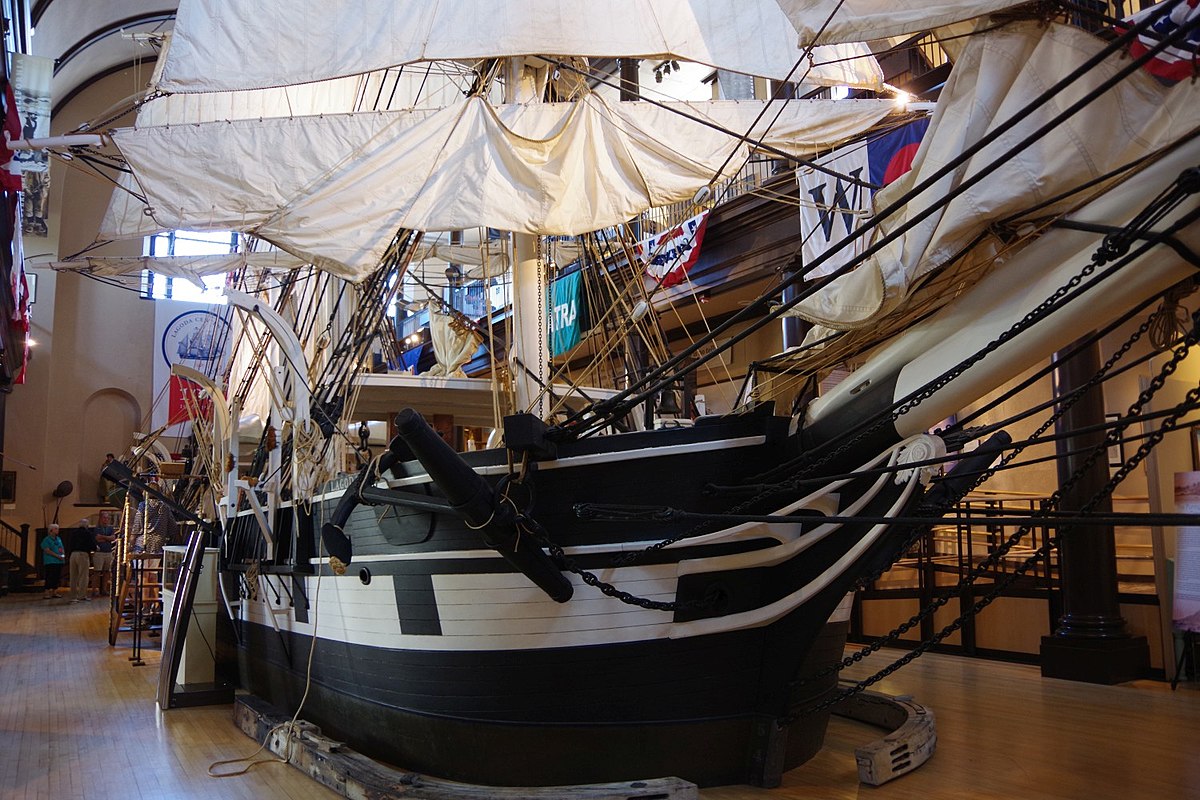The New Bedford Whaling Museum is a museum in New Bedford, Massachusetts, United States that focuses on the history, science, art, and culture of the international whaling industry, and the "Old Dartmouth" region (now the city of New Bedford and towns of Acushnet, Dartmouth, Fairhaven, and Westport) in the South Coast of Massachusetts.

The museum is governed by the Old Dartmouth Historical Society (ODHS), which was established in 1903 "to create and foster an interest in the history of Old Dartmouth." Since then, the museum has expanded its scope to include programming that addresses global issues "including the consequences of natural resource exhaustion, the diversification of industry, and tolerance in a multicultural society."

Its collections include over 750,000 items, including 3,000 pieces of scrimshaw and 2,500 logbooks from whaling ships, both of which are the largest collections in the world, as well as five complete whale skeletons.

The museum's Bourne Building houses the Lagoda, a half-scale model of a whaling ship that was commissioned in 1916 and is the world's largest model whaling ship. The Lagoda is a half-scale model of the whaling ship Lagoda, located at the New Bedford Whaling Museum.

The original ship was built in 1826, converted to a whaling ship in 1841, and broken up in 1899. The model was commissioned in 1916 and is the world's largest whaling ship model.
According to en.wikipedia











